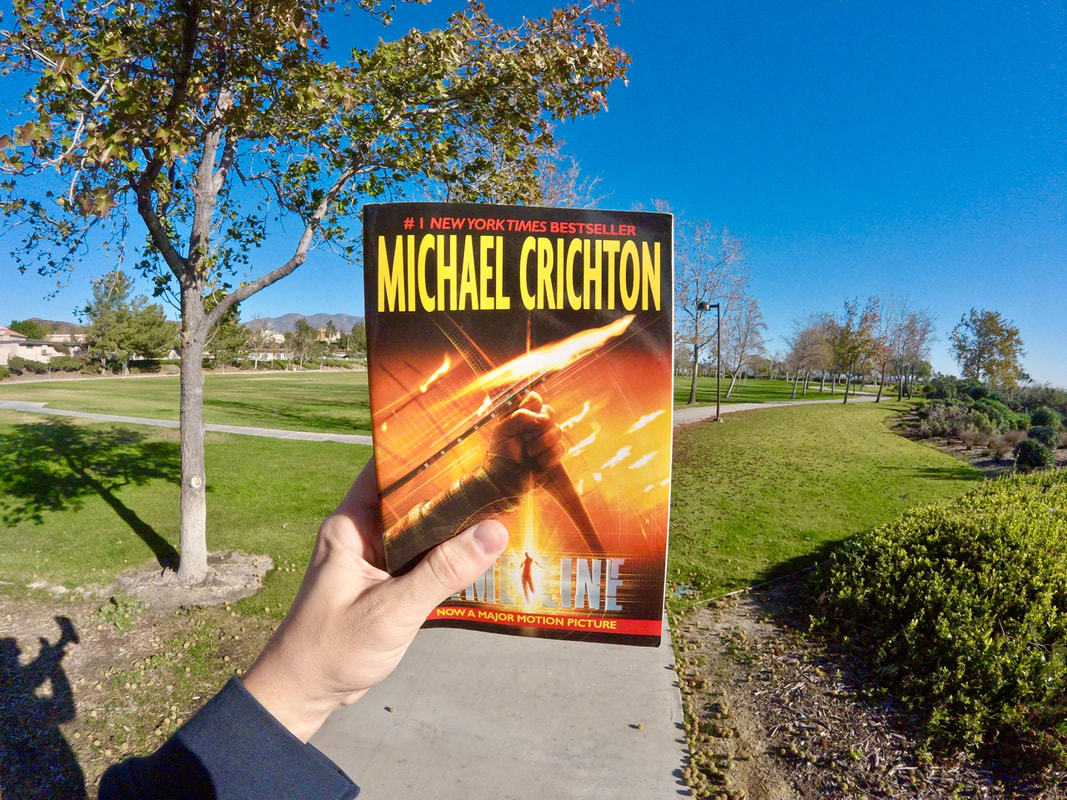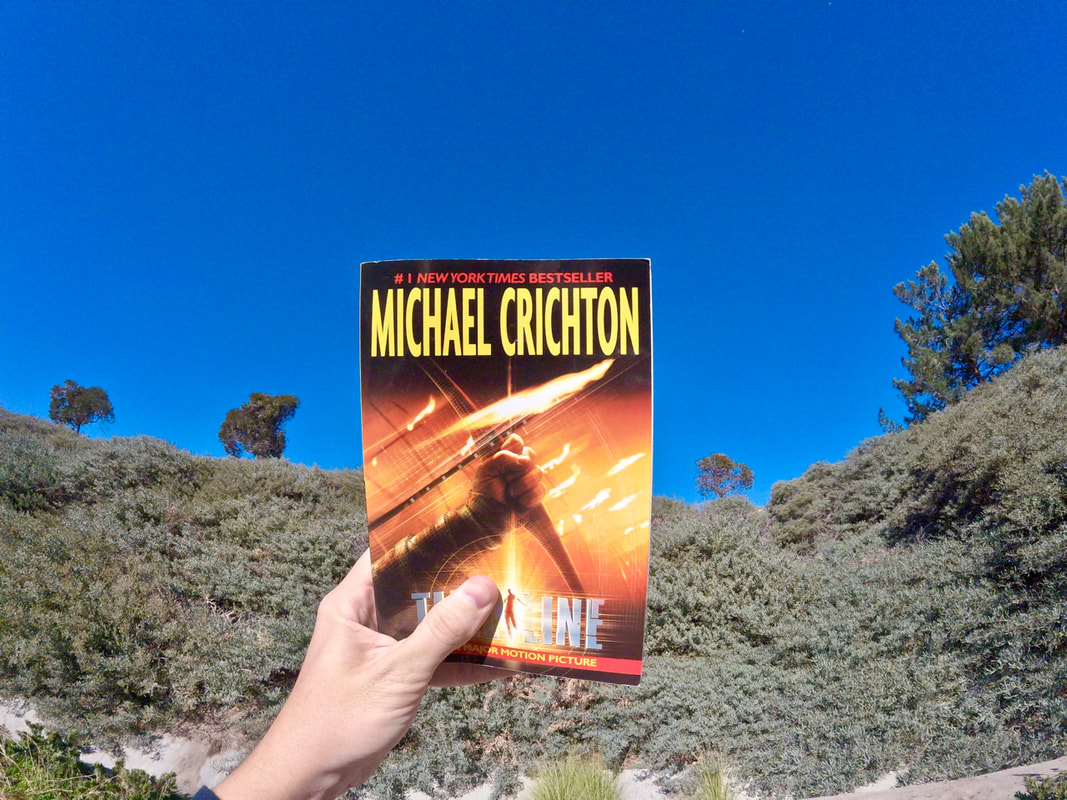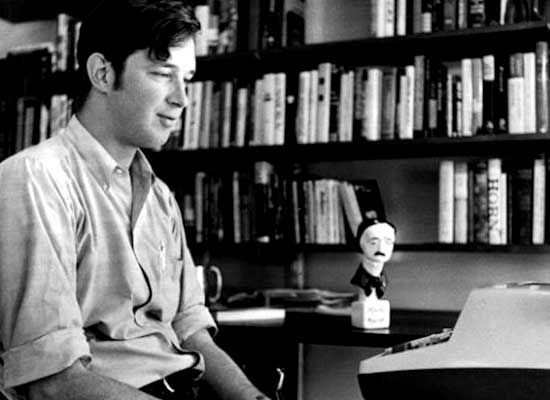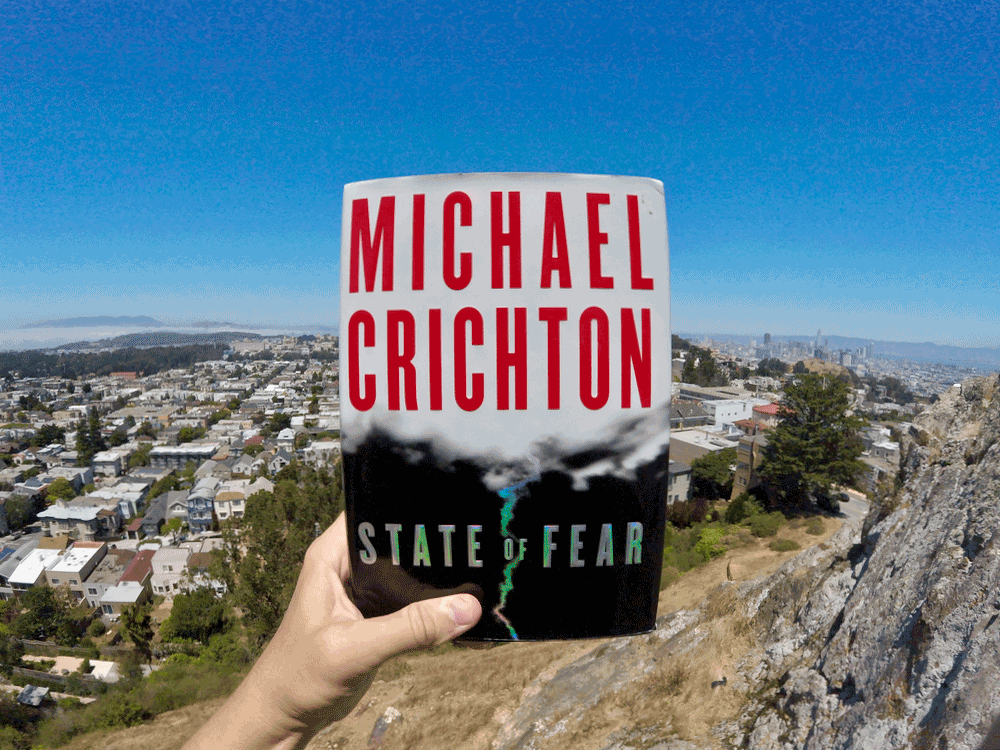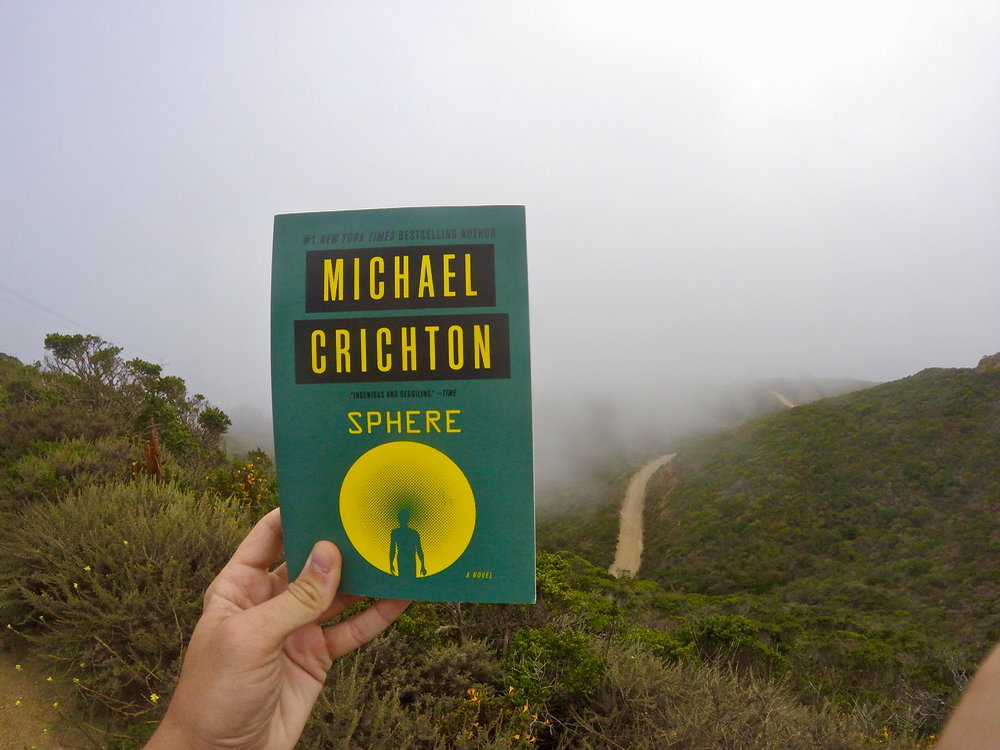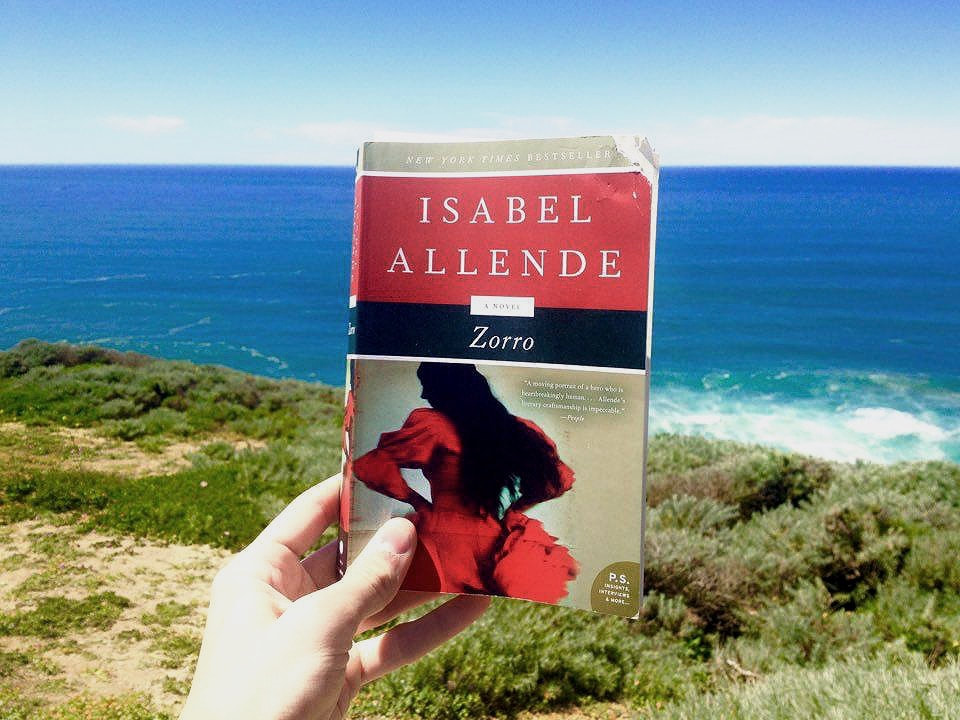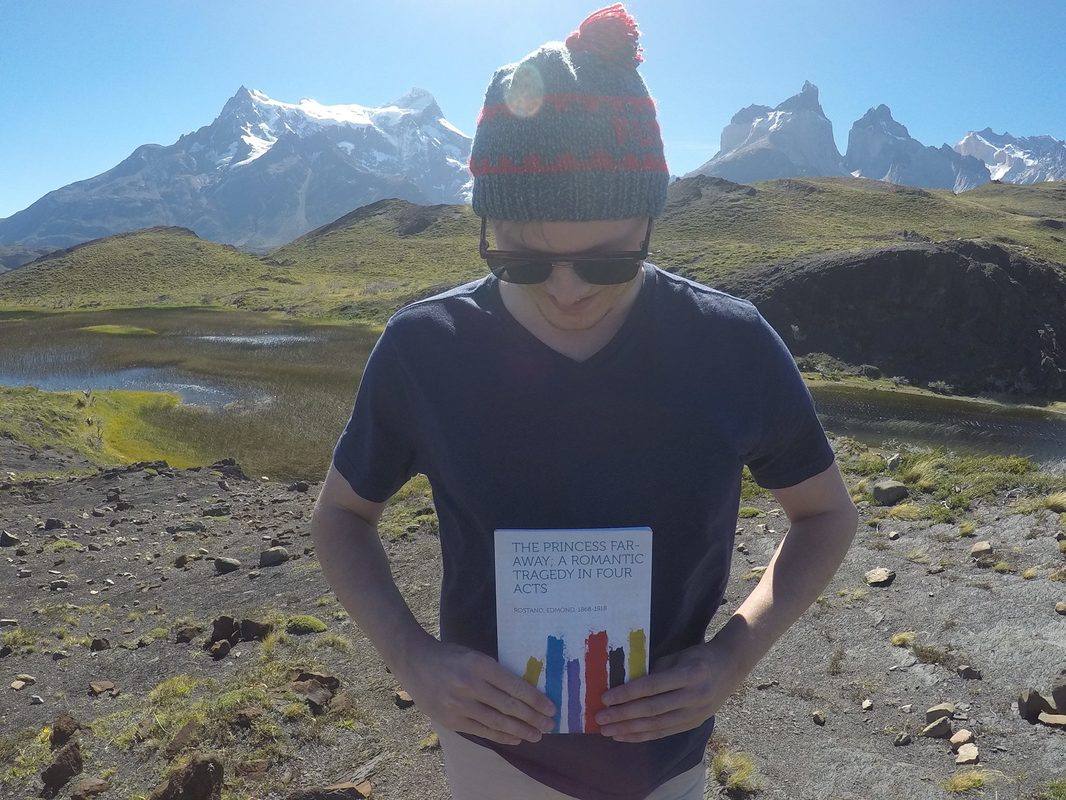"Professor Johnston often said that if you didn't know history, you didn't know anything. You were a leaf that didn't know it was a part of a tree."
— Michael Crichton, Timeline
Summer, 1999.
A team of grad-students and young archeologists work eagerly to uncover and restore the ancient medieval ruins of Castelgard. Once the site for a major battle in the Hundred Years War fought between England and France in the 14th and 15th centuries, the southern French farmland holds many deeper mysteries. One involves their professor's eyeglasses and signature, which they find scrawled on a 600-year-old scroll in the monastery. Carbon dating says it isn't a fake. And the message says HELP ME.
Four students jet off to their sponsor's Arizona-based headquarters to demand answers, as the professor was last known to have stopped in there. But suddenly they find that their seemingly benign patron knows exactly when the professor is.
Part-sci-fi, part historical adventure, Timeline explores future quantum mechanics and past cultures with the pace of a modern behind-enemy-lines, rescue-mission thriller.
I loved it, again. [JG]
A team of grad-students and young archeologists work eagerly to uncover and restore the ancient medieval ruins of Castelgard. Once the site for a major battle in the Hundred Years War fought between England and France in the 14th and 15th centuries, the southern French farmland holds many deeper mysteries. One involves their professor's eyeglasses and signature, which they find scrawled on a 600-year-old scroll in the monastery. Carbon dating says it isn't a fake. And the message says HELP ME.
Four students jet off to their sponsor's Arizona-based headquarters to demand answers, as the professor was last known to have stopped in there. But suddenly they find that their seemingly benign patron knows exactly when the professor is.
Part-sci-fi, part historical adventure, Timeline explores future quantum mechanics and past cultures with the pace of a modern behind-enemy-lines, rescue-mission thriller.
I loved it, again. [JG]
WHY I LOVE IT
I first read Timeline in middle school. It was my introduction to Michael Crichton, the old worn paperback a gift from a family friend who'd come to stay with us for a week. I remember looking at the cover with a bit of suspicion at first, in part because my dad—a notorious non-reader in the family—picked it up and found himself unable to put it down. But I gave it a go anyways, myself in love with Robin Hood, dark castles, dragons — and the time-travel element of Harry Potter and the Prisoner of Azkaban.
What I found myself enjoying fifteen years later was the grim, disenchanted medieval world that Crichton depicts: plague, ruthless warlords, deviant seductresses, powerless and victimized common folk, civil war — thematically, the novel works for me best at these moments in which the grad students, Marek especially, encounter the disconnect between his modern assumptions and the world of Castelgard. Chivalry, Crichton contends, was dead back then, too.
Oh, and I actually enjoyed the movie adaptation a lot!
What I found myself enjoying fifteen years later was the grim, disenchanted medieval world that Crichton depicts: plague, ruthless warlords, deviant seductresses, powerless and victimized common folk, civil war — thematically, the novel works for me best at these moments in which the grad students, Marek especially, encounter the disconnect between his modern assumptions and the world of Castelgard. Chivalry, Crichton contends, was dead back then, too.
Oh, and I actually enjoyed the movie adaptation a lot!
QUOTES
4. "He had a term for people like this: temporal provincials — people who were ignorant of the past, and proud of it. Temporal provincials were convinced that the present was the only time that mattered, and that anything that had occurred earlier could be safely ignored. The modern world was compelling and new, and the past had no bearing on it. Studying history was as pointless as learning Morse Code, or how to drive a horse-drawn wagon. Professor Johnston often said that if you didn't know history, you didn't know anything. You were a leaf that didn't know it was a part of a tree."
3. "The fourteenth century was a vanished world, and a dangerous one. It was a religious world; most people went to church at least once a day. But it was an incredibly violent world, where invading armies killed everyone, where women and children were routinely hacked to death, where pregnant women were eviscerated for sport. It was a world that gave lip service to the ideals of chivalry while indiscriminately pillaging and murdering, where women were imagined to be powerful and delicate, yet they ruled fortunes, commanded castles, took lovers at will, and plotted assassinations and rebellions. It was a world of death, of sweeping plagues, of disease, of constant warfare."
2. "He recognized it at once: the town and the fortress of Castelgard. And it was no longer a ruin. Its walls were complete. He was here."
1. "As he watched the [knight's] aggressiveness and speed, Marek realized that left to his own devices, this was exactly the way he himself would choose to fight—quickly, with the condition and reserves of stamina to wear down an opponent. He had only imagine a slower fighting style from an unconscious assumption that men in the past were weaker or slower or less imaginative than he was, as a modern man. Market knew this assumption of superiority was a difficulty found by every historian. He just hadn't thought he was guilty of it."
3. "The fourteenth century was a vanished world, and a dangerous one. It was a religious world; most people went to church at least once a day. But it was an incredibly violent world, where invading armies killed everyone, where women and children were routinely hacked to death, where pregnant women were eviscerated for sport. It was a world that gave lip service to the ideals of chivalry while indiscriminately pillaging and murdering, where women were imagined to be powerful and delicate, yet they ruled fortunes, commanded castles, took lovers at will, and plotted assassinations and rebellions. It was a world of death, of sweeping plagues, of disease, of constant warfare."
2. "He recognized it at once: the town and the fortress of Castelgard. And it was no longer a ruin. Its walls were complete. He was here."
1. "As he watched the [knight's] aggressiveness and speed, Marek realized that left to his own devices, this was exactly the way he himself would choose to fight—quickly, with the condition and reserves of stamina to wear down an opponent. He had only imagine a slower fighting style from an unconscious assumption that men in the past were weaker or slower or less imaginative than he was, as a modern man. Market knew this assumption of superiority was a difficulty found by every historian. He just hadn't thought he was guilty of it."
ABOUT THE AUTHOR
| Michael Crichton (1942-2008) remains the only writer to have a number one book, movie, and TV show in the same year. His novels include Jurassic Park, The Lost World, Next, and Sphere among others. Collectively his works have sold over 200 million copies worldwide, been translated into thirty-eight languages, and provided the basis for fifteen films. He was also the director of Westworld, The Great Train Robbery, and Looker. |
YOU MAY ALSO LIKE
| Michael Crichton Michael Crichton | Isabel Allende Edmond Rostand |

